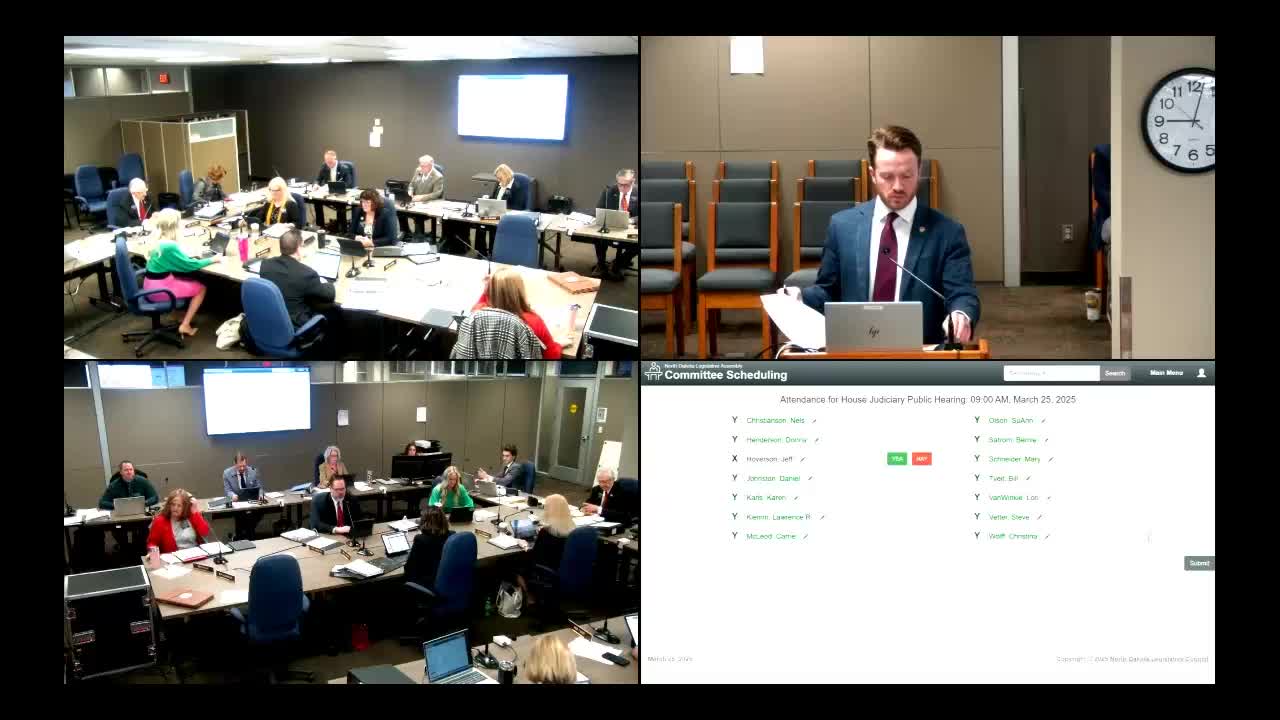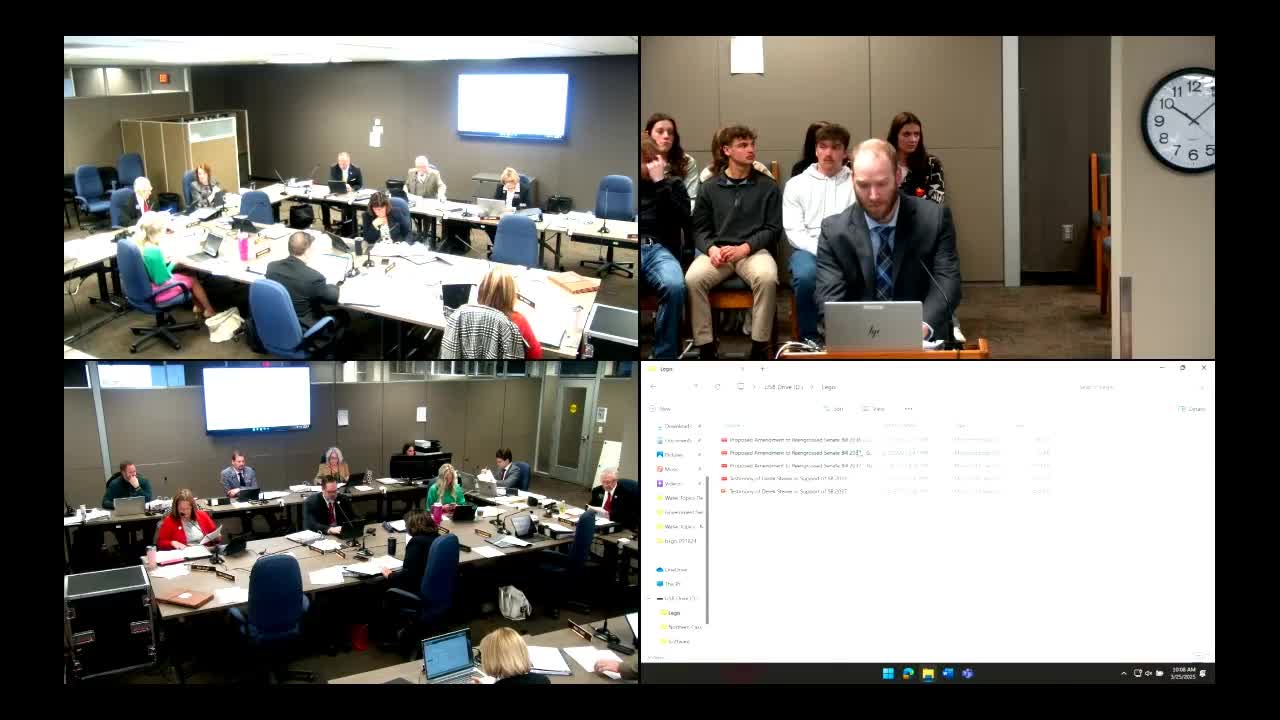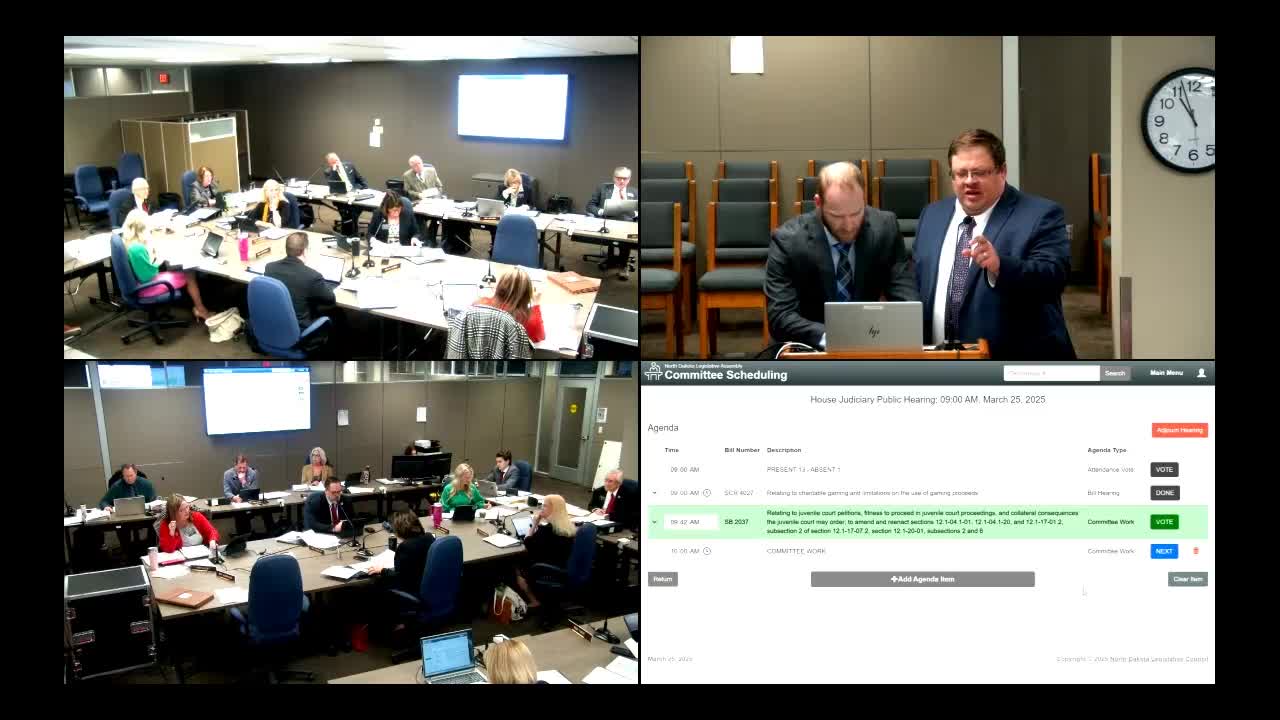Article not found
This article is no longer available. But don't worry—we've gathered other articles that discuss the same topic.

House Judiciary committee votes 'do not pass' on proposed constitutional ban on political use of charitable gaming proceeds

House Judiciary amends juvenile 'collateral consequences' bill; committee votes 8–5 to send bill to appropriations

